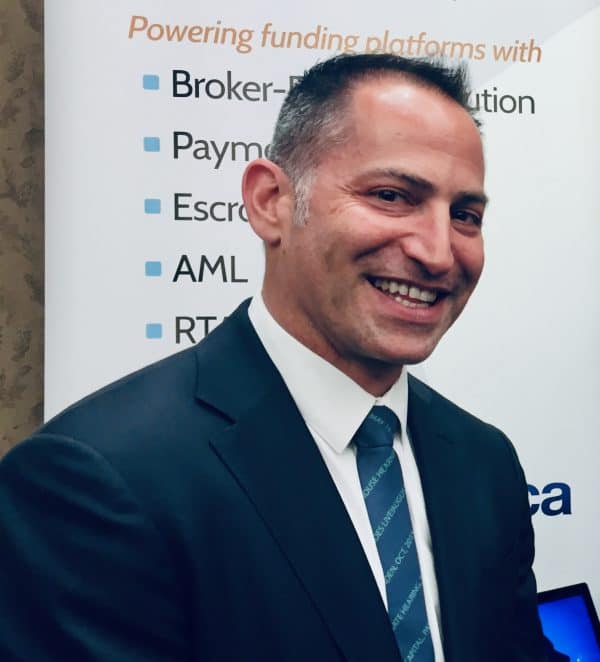With the investment crowdfunding industry surpassing the $2 billion mark and involving over 6,600 companies conducting 7,600 offerings across 580 industries, Capital Ideas checks in with Sherwood “Woodie” Neiss, one of the early architects of what evolved into Regulation Crowdfunding [Reg CF]. Among other things, Woodie is now employing AI as part of his effort to collect, analyze, and disseminate data to enable the crowdfunding industry to grow further. Hear Woodie discuss his efforts and some of the regulatory barriers facing the industry including CPA reviews, regulatory exposure for CF platforms, and accredited investor restrictions.
Woodie highlights the growth and success of equity crowdfunding since its inception. He mentions the database his firm Crowdfund Capital Advisors created to collect information on companies raising money through Regulation Crowdfunding. The data reveals a significant increase in committed capital, with October 2023 recording $52.4 million, marking a substantial shift from the initial slow adoption.
One noteworthy transformation is the shift in the profile of companies participating. Initially dominated by pre-revenue startups, the industry has seen a change after the SEC lifted the cap from $1 million to $5 million in 2021. Now, 65% of companies are post-revenue and over three years old. The average raise has also increased, reaching $715,000 in October.
Role of AI in Crowdfunding
Woodie delves into the challenges faced by the crowdfunding industry, emphasizing the lack of media coverage and institutional capital. To address these challenges, he introduces the concept of using AI, specifically machine learning algorithms, to analyze and predict the success of crowdfunding campaigns.
The algorithm developed by Crowdfund Capital Advisors examines signals from companies that have succeeded in crowdfunding, such as revenue changes, expense changes, earnings changes, and valuations. The goal is to identify patterns that indicate potential success. This data-driven approach allows for weekly predictive models that recommend companies for further human evaluation.
Application of AI in Investment Decision-Making
Woodie explains the investment process at D3 VC, a $5 million starter fund aiming to invest $25,000 into 200 companies. The algorithm guides the selection process, considering signals from successful companies and investor sentiment. By backtesting the algorithm against successful companies like Boxable, the team aims to demonstrate the effectiveness of their approach.
He emphasizes the potential for institutional capital to enter the crowdfunding market if AI-driven algorithms can provide reliable signals for early-stage companies. The vision is to attract larger funds by showcasing successful outcomes and offering a diversified investment strategy.
Regulatory Impediments and Gray Areas
Neiss acknowledges regulatory impediments within the crowdfunding space. He addresses issuer concerns about CPA reviews and emphasizes the importance of third-party verification for investor confidence. Neiss suggests that despite complaints, there are resources available for issuers to navigate regulatory requirements.
He also highlights gray areas, particularly concerning platform accountability and potential enforcement actions. Neiss advocates for clear regulations and accountability for crowdfunding platforms while suggesting that the industry needs to address these issues collectively.
Closing Thoughts and Future Prospects
In the end, Woodie expresses optimism about the crowdfunding industry’s future. He acknowledges the industry’s achievements and diverse participation across various sectors. He calls for continued efforts to raise the Regulation Crowdfunding cap from $5 million to $20 million, arguing that the industry has proven its viability and is ready for further expansion.
Woodie provides a comprehensive overview of equity crowdfunding’s journey, the role of AI, regulatory challenges, and the potential for institutional capital to play a more significant role in the future. Woodie’s insights contribute to the ongoing dialogue about the evolution and maturation of crowdfunding as a viable alternative finance option.
 Nick Morgan is President and Founder of ICAN, the Investor Choice Advocates Network, a nonprofit public interest litigation organization dedicated to serving as a legal advocate and voice for everyday investors and entrepreneurs. He is also a partner in the Investigations and White Collar Defense Group at the law firm Paul Hastings. He previously served as Senior Trial Counsel in the SEC’s Enforcement Division.
Nick Morgan is President and Founder of ICAN, the Investor Choice Advocates Network, a nonprofit public interest litigation organization dedicated to serving as a legal advocate and voice for everyday investors and entrepreneurs. He is also a partner in the Investigations and White Collar Defense Group at the law firm Paul Hastings. He previously served as Senior Trial Counsel in the SEC’s Enforcement Division.


